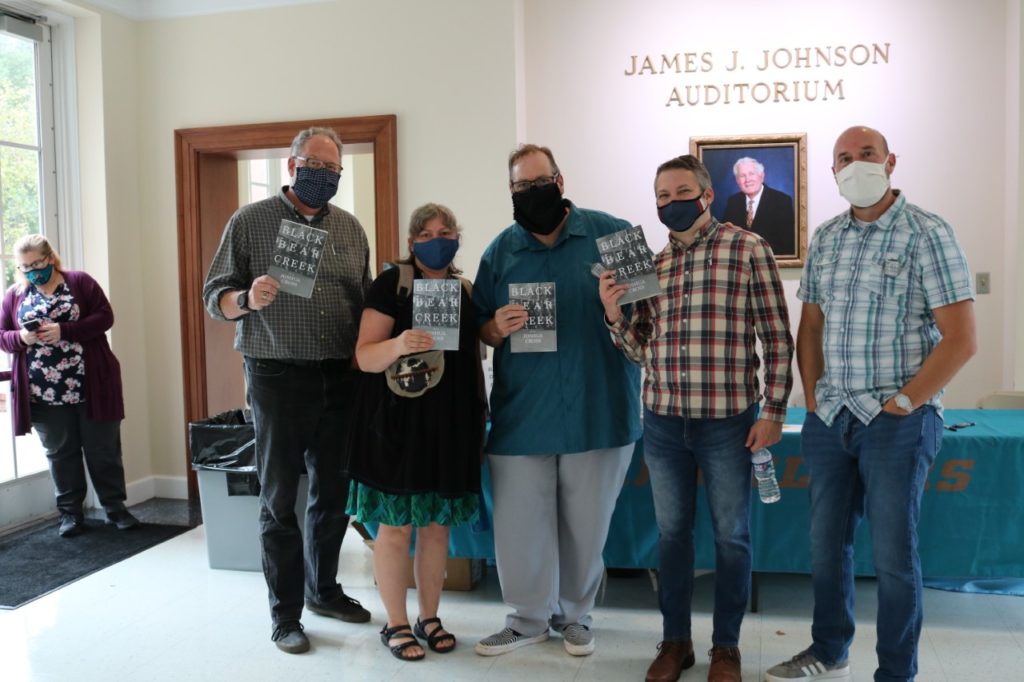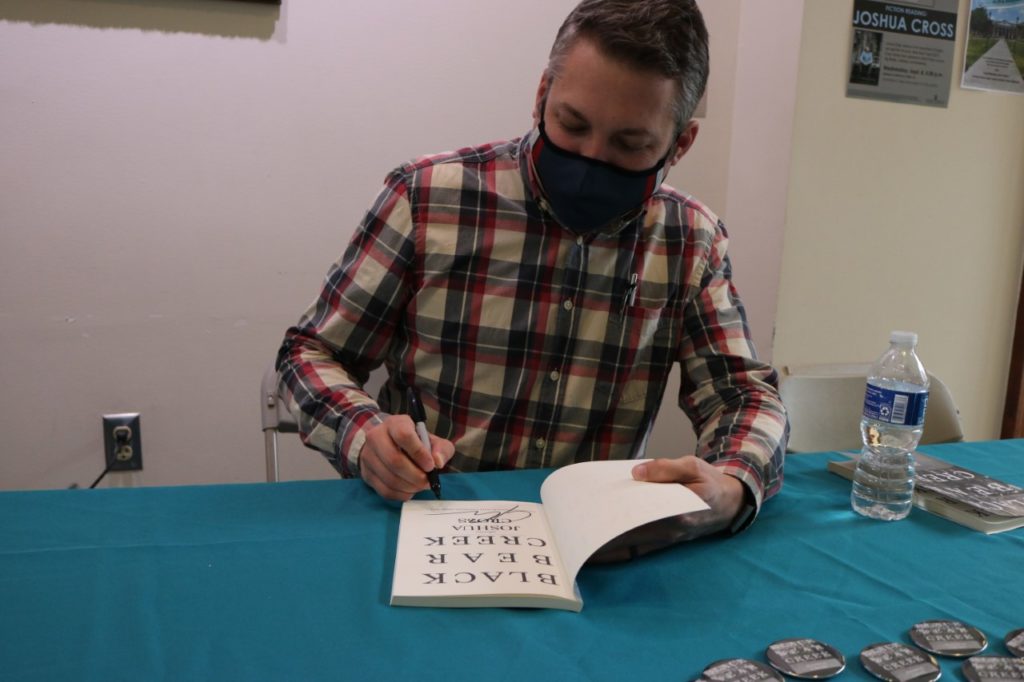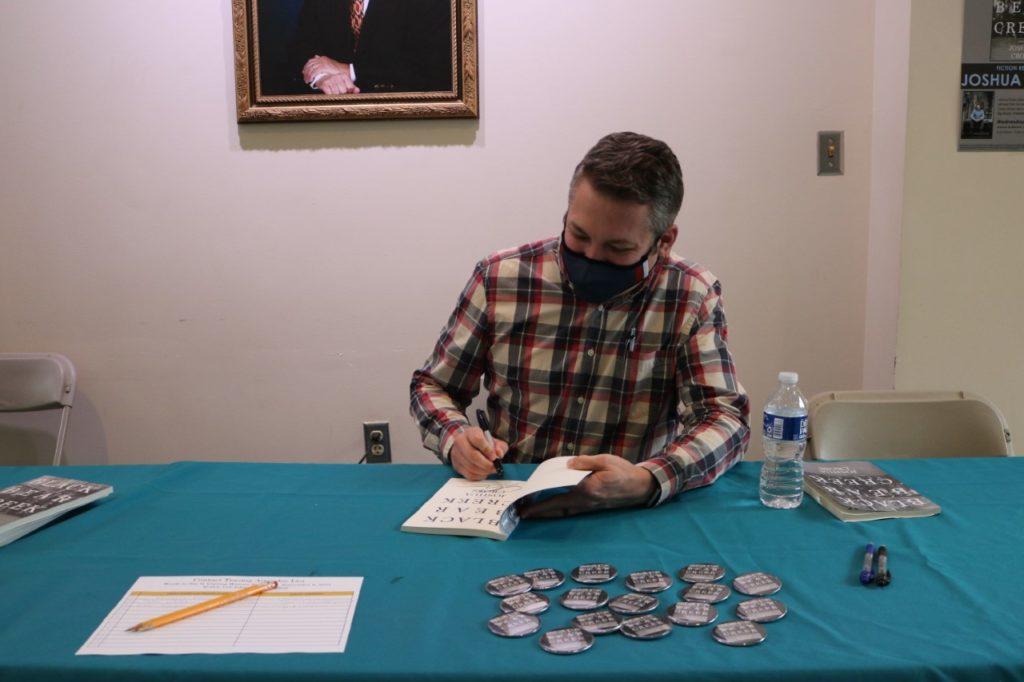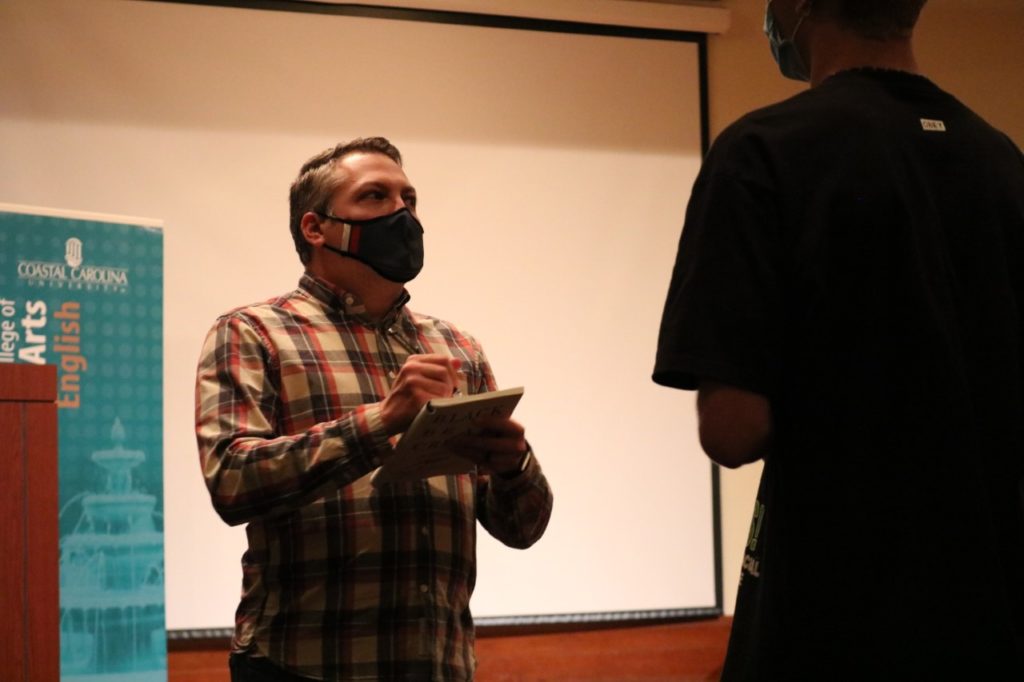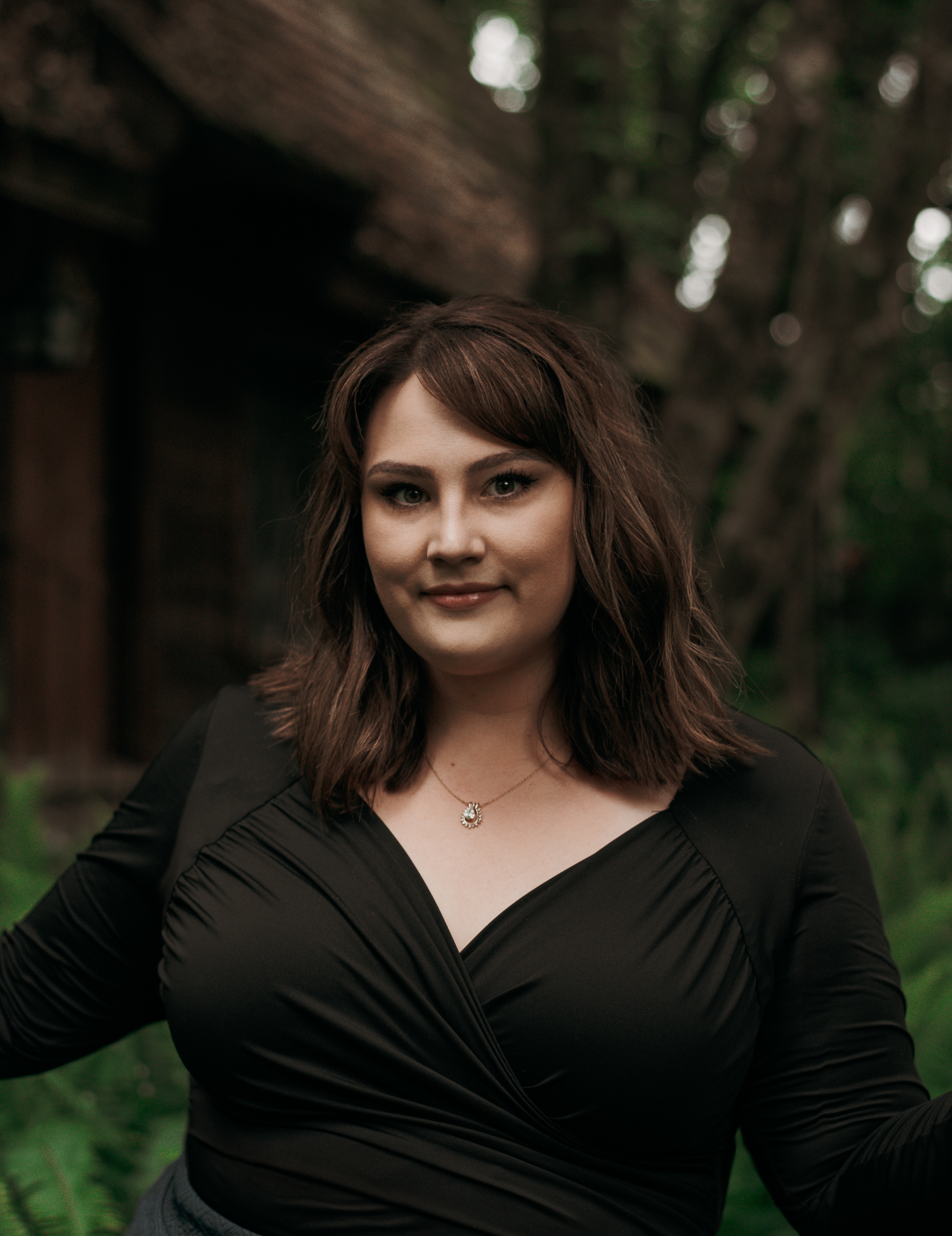Joshua Cross, lecturer in Coastal Carolina University’s Department of English, held a reading and discussion of his newest work, Black Bear Creek, for the Words to Say it Visiting Writers Series in September 2021. We had a moment to talk to Cross about his background, his process and how he applies his expertise in the classroom.
Black Bear Creek is a collection of short stories connected by a fictional town in the Coal River Valley of West Virginia. Cross grew up in Beckley, W.V., and says elements of the stories are loosely inspired by the communities that surrounded him. He also finds influence in other authors of the region including Ann Pancake, Breece Pancake, Pinckney Benedict, and Jayne Anne Phillips. “There’s a lot of Southern writers, such as William Faulkner or contemporaries like Randall Kenan, who focus on fictional towns in a way that I admire,” said Cross.
Black Bear Creek began out of Cross’ work on his doctoral dissertation at Oklahoma State University. His primary focus in writing was poetry, until he found great influence in a writing workshop with Dr. Aaron Gwyn, professor at UNC Charlotte. “That class was sort of what changed things for me. It really got me started with writing fiction,” said Cross. “I never found that I could write about southern West Virginia until I moved to Oklahoma.” After finishing his Ph.D. and accepting a position at CCU, he continued revising and adding stories to the collection. “There was something about getting so far away from [my hometown] that allowed me the space to write about it.”
I never found that I could write about southern West Virginia until I moved to Oklahoma.
Joshua Cross
Cross notes the distinction between the short story and novel genres. “I think a really good short story does a lot of what a novel accomplishes,” said Cross. “The condensed form adds difficulty to the writing experience, since you don’t have as much time and space to invest your reader in characters and setting, but I think it also makes for a more appealing read.”
Cross finds his work in the CCU classroom rewarding. “I like to teach and talk to students about things that interest them,” he says. “In my creative writing classes, I like when students connect their own experience to what they’re reading; in composition, students can write about their identity and the communities that they come from.”
Photos courtesy of Kelsie Crough.

